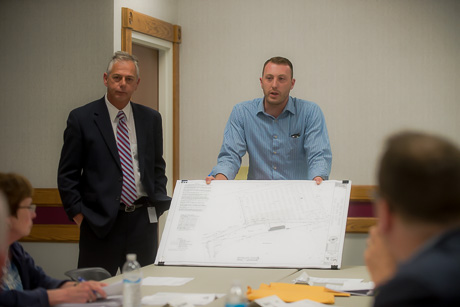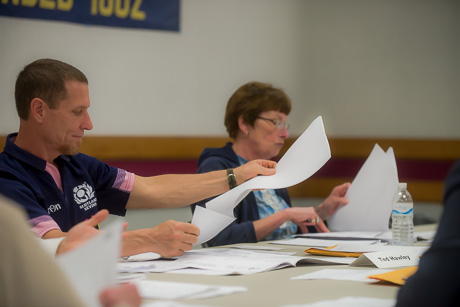
Officials at Western OTB think the odds of hitting a jackpot are better if their proposed hotel overlooks the Batavia Downs racetrack.
It is, after all, the oldest lighted harness racing track in America and the reason Batavia Downs exists in the first place.
Shoehorning it into the constrained space around the track, however, will require some bending of the rules.
There are zoning variances needed to lot size, lot frontage, front, side and rear setbacks and building height.
The scope of the variances prompted county planning staff to recommend disapproval of the project.
After Western OTB VP Mike Nolan pleaded with the board to support the project, saying it's the only viable option to ensure Batavia Downs continues to thrive and generate millions of dollars for the local economy, planning board members were unwilling to say no to the plan. They also didn't say yes.
The board took no action and the plan is now kicked back with no recommendation to Town of Batavia planners. It will be up to the town's Planning Board to decide whether to grant the variances.
Yes, Town of Batavia, not City of Batavia.
When the hotel plans were first announced, for the 80- to 100-room hotel, officials were talking about a location on the south end of the track, near Tops Plaza, but Nolan said further study on that location indicated it just wasn't viable. It's simply not big enough.
The current proposed location is on the north end of the track and would require the removal of some of the current paddock area.
It's critical, Nolan said, that the hotel be attached to the gaming facility and that it have suites with balconies overlooking the track.
A board member asked, why not in the parking lot on the west side of Park Road?
"It's important that horse racing stays strong and vibrant," Nolan said. "Over in the parking lot, it wouldn't have the same appeal as overlooking the oldest lighted harness racing track in America."
The target audience for the hotel aren't travelers passing through the area, but people willing to travel to Batavia specifically to place bets on races and drop coins in slots.
The desk for the hotel would, in fact, be in the gaming facility itself. (Some of us might call it a casino, but the state's compact with the Senecas prohibits Batavia Downs officials from calling it a casino).
The gaming environment in WNY is getting more competitive, Nolan said, and with the Senecas planning a new $400-million casino a short drive away, it's critical Batavia Downs up its wager on local gaming. Western OTB recently completed a $28-million upgrade to Batavia Downs and the hotel represents the next phase in making Batavia Downs more attractive to gambling dollars.
The land for the hotel would be sold to private investors who would own the hotel and operate it as a franchise of a national hotel company.
Nolan noted that when Western OTB took over Batavia Downs, since Western OTB is a public benefit corporation, it took $3 million in assessed value off the tax roles. The new hotel would be assessed at something in the neighborhood of $7 million, and while tax abatements used to help fund development would delay the full value of that tax levy being realized by some local governments, eventually it would generate substantial tax revenue for the county and school district.
Even if the private developers decided to eventually sell the property and Western OTB became the owner, the property would stay on the tax roll, Nolan said.

